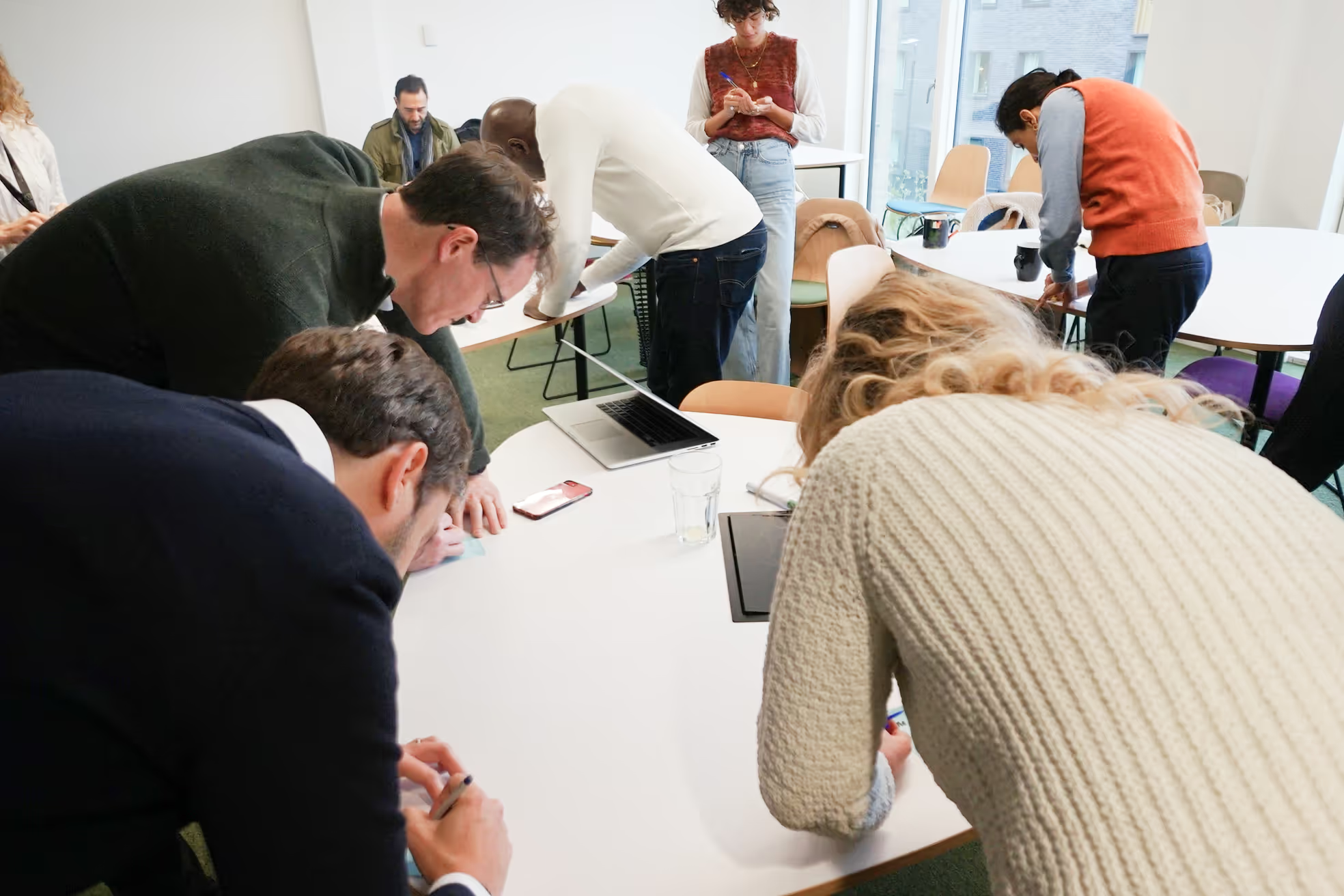
Systems Thinking
for Sustainability
Unlock the power of systems thinking to revolutionize your approach to sustainability. This course explores essential techniques and insights, equipping you to tackle today’s complex ecological challenges with a holistic, interdisciplinary mindset.

Programme highlights
In today’s fast-evolving world, mastering systems thinking is essential for sustainability professionals to navigate and solve the complex, interconnected environmental and social challenges we face.
Professional
New start date coming soon
7 sessions, 6 weeks

Why Systems Thinking?
The modern economy is suddenly shaped by a Race to Artificial Intelligence. Yet, the real – increasingly existential – race is whether we can exercise Sustainable Intelligence before it is too late.
Systems thinking, newly on the rise in many fields, but still largely absent in professional settings, holds the key because it explains why so many widely accepted sustainability ‘solutions’ continue to disappoint and identifies alternative strategies that may yet work.
This course presents the key techniques and insights of systems thinking for those seeking better answers for today’s sustainability challenges.


What you need to know
LIS leads in interdisciplinary education, empowering you with expert systems thinking skills essential for confronting and solving today's complex sustainability issues urgently.

%201.avif)



Programme overview
Gain critical systems thinking skills, understand complex sustainability challenges, and develop innovative, interdisciplinary strategies to drive real, impactful change in your field.
You will be expected to attend 3 sessions in person.

Reviews the emergence of the ‘sustainability’ discourse over the last 40 years to identify why we are responding to global ecological threats the way we are and to reflect on whether that response is working.

Charts the rise of ‘win-win’ sustainability strategies, including Socially Responsible Investing, Corporate Social Responsibility and ‘ESG’ (environmental, social and governance) and reflects on the efficacy of those strategies.
Introduces another systems archetype, ‘Shifting the Burden’, to clarify the weakness of ‘win-win’ thinking.

Identifies that ‘economic’ and ‘ecological’ perspectives are not just two different disciplines in a larger curriculum, but profoundly different ways of perceiving the world, which is the under-appreciated crux of our sustainability challenge.
Reflects on the unsystemic nature of economic thinking relative to ecological thinking.

Explores why we must make models to navigate the world, but those models must always be wrong, even as they become causes.
Introduce concepts of emergence, enabling constraints and layered adaptation as central features of complex adaptive systems.
Explains how humankind is an emergent nested complex system and the implications of that layered perspective for achieving sustainability.
Identifies how complex systems achieve sustainability, by organising around balance, not growth.
Identifies how today’s market primacy is an emergent phenomenon.


How can free markets and democracy address a problem like climate change?

Reflects on the roles of individuals and organisations in promoting deeper cultural and behavioural changes.
*This course structure is provisional and may change as we finalise the content.

Grasp Key Systems Thinking and Complexity Concepts for Sustainability

Understand Ecological, Social, and Economic Systems as Interconnected Complex Systems for Sustainability

Recognize the Relationship Between Private, Public Policy, and Cultural Responses to Sustainability Challenges

Build a Framework for Understanding the Evolution of Sustainability Discourse Over the Last 50 Years
Learning Outcomes
By the end of the course, participants will have a comprehensive understanding of the unique principles, complexities, and practices of systems thinking, and how to effectively apply these insights to tackle sustainability challenges in their professional lives.



.svg)





.svg)
